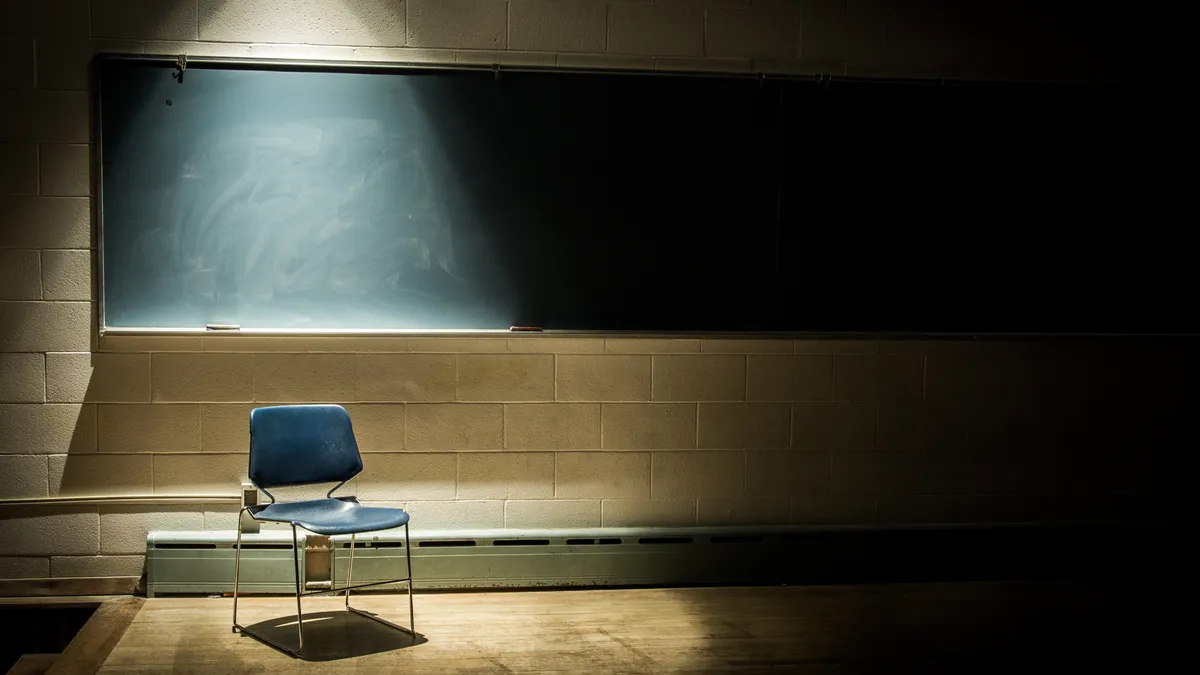Dive Brief:
-
California's Folsom Cordova Unified School District has agreed to fix restraint and seclusion violations and compliance concerns after an investigation by the U.S. Department of Education's Office for Civil Rights found the district's practices denied some students with disabilities their civil rights.
-
OCR's compliance review found several areas of concern, including one student attending a nonpublic school who spent over 38 hours in a "refocus room" during the 2018-19 school year and had three prone restraints in 2019. The district, however, didn't have any information about how the school made up for the student's missed instruction or special education services.
-
Some of the actions the district has taken or will take include revising and distributing to district employees and nonpublic school staff its policies, procedures and forms for restraint and seclusion, as well as implementing a program to monitor the use of restraint and seclusion with students in district schools and nonpublic schools.
Dive Insight:
The Folsom Cordova USD near Sacramento placed about 60 students with disabilities in nonpublic schools over the 2017-18 and 2018-19 school years.
Agreements between the district and nonpublic schools said the nonpublic schools were responsible for providing all services in a student’s individualized education program and complying with the district’s policies and procedures. However, the district is ultimately responsible for ensuring services meet federal civil rights laws under Section 504 of the Rehabilitation Act of 1973 and Title II of the Americans with Disabilities Act of 1990.
OCR also found violations in the district's public schools. One student spent over 48 hours in a "regroup and return" room over the 2017-18 and 2018-19 school years, but the district "did not produce any information describing how instruction was made up or if compensatory services were offered or provided," an Oct. 12 letter from OCR to the district said.
During the investigation, the district took several steps to improve its compliance, including modifying its process for reviewing behavior emergencies and rewriting its master agreement with nonpublic schools.
Folsom Cordova USD’s resolution agreement with OCR to remedy restraint and seclusion practices follows similar actions from several other school systems in Alaska, California, Utah and Virginia over the past year.
While several states have restrictions on the use of restraint and seclusion in schools, there are no federal minimum standards for students with or without disabilities. The Education Department has resource documents on the use of restraint and seclusion in schools.
Proposed legislation titled the Keeping All Students Safe Act would set uniform definitions for restraint and seclusion, prohibit seclusions and limit restraints, among other provisions.
Denise Marshall, CEO for the Council of Parent Attorneys and Advocates, said in a statement that the organization applauds OCR's efforts to investigate violations of students' civil rights, but that a federal rule is needed.
“As the lead voice to end the use of seclusion and to prevent and reduce the use of restraint, we remain steadfast that Congress must pass the Keeping All Students Safe Act (KASSA), federal legislation designed to provide training to school personnel, ban seclusion, significantly limit use of restraint to emergency situations, and require parents to always be notified of its use." Marshall said. "Together, the bill’s provisions would ensure protection for everyone."






 Dive Awards
Dive Awards





